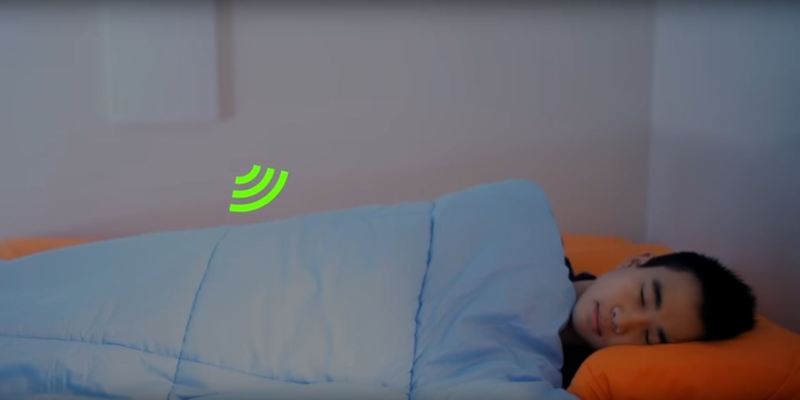If you’ve never been a patient at a sleep laboratory, monitoring a person as they sleep is an involved process of wires, sensors, and discomfort. Seeking a better method, MIT researchers — led by [Dina Katabi] and in collaboration with Massachusetts General Hospital — have developed a device that can non-invasively identify the stages of sleep in a patient.
Approximately the size of a laptop and mounted on a wall near the patient, the device measures the minuscule changes in reflected low-power RF signals. The wireless signals are analyzed by a deep neural-network AI and predicts the various sleep stages — light, deep, and REM sleep — of the patient, negating the task of manually combing through the data. Despite the sensitivity of the device, it is able to filter out irrelevant motions and interference, focusing on the breathing and pulse of the patient.
What’s novel here isn’t so much the hardware as it is the processing methodology. The researchers use both convolutional and recurrent neural networks along with what they call an adversarial training regime:
Our training regime involves 3 players: the feature encoder (CNN-RNN), the sleep stage predictor, and the source discriminator. The encoder plays a cooperative game with the predictor to predict sleep stages, and a minimax game against the source discriminator. Our source discriminator deviates from the standard domain-adversarial discriminator in that it takes as input also the predicted distribution of sleep stages in addition to the encoded features. This dependence facilitates accounting for inherent correlations between stages and individuals, which cannot be removed without degrading the performance of the predictive task.
Anyone out there want to give this one a try at home? We’d love to see a HackRF and GNU Radio used to record RF data. The researchers compare the RF to WiFi so repurposing a 2.4 GHz radio to send out repeating uniformed transmissions is a good place to start. Dump it into TensorFlow and report back.
The team is hoping to make diagnosing sleep disorders — and other ailments that disrupt sleep like Alzheimer’s and Parkinson’s — a bit easier. Boasting 80% accuracy, the team maintains this is comparable to traditional methods of monitoring sleep cycles using an EEG and technicians — with far less hassle for all involved.
All this said, sometimes extreme measures are needed to dissuade outside forces from interrupting your sleep, or enlist the aid of a cuddly terminator.
[Thanks for the tip, Itay via Gizmodo]
















“AI Watches You Sleep; Knows When You Dream”
Does it know when I’m naughty, or nice too?
No because the tragics that designed it never considered that some people do not sleep on their own.
Sounds a little bit too nsa to me.
I read the headline as Al Williams was stalking us. I was surprised. I had expected it to be Brian Benchoff.
I made one of these recently with one of those radar motion detector modules. Just logs basic movement, this without the brains, cheap tho